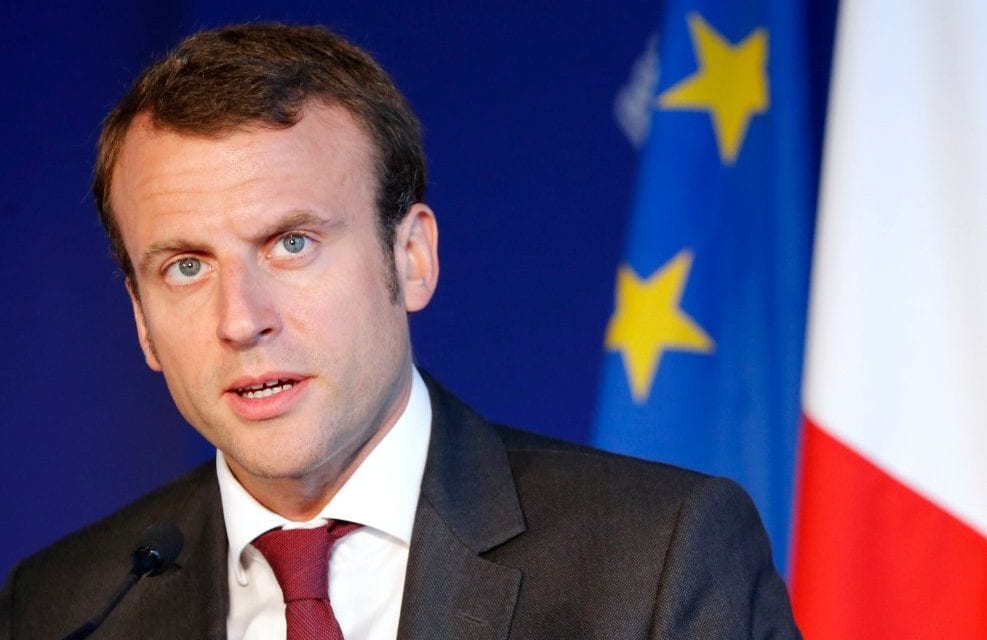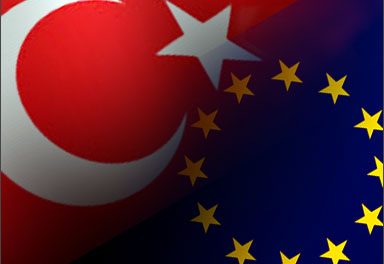By LEON HADAR , The American Conservative
Beltway pundits are constantly warning that President Trump, uneducated in Middle Eastern history as he is, is “abandoning” the U.S. “leadership” role in the region, thereby creating a strategic “vacuum.” This is providing an opportunity for other powers—France, for example—to pursue more activist diplomacy in the Levant and the Persian Gulf.
Quelle horreur!
“Macron Embraces Mideast Role as U.S. Diplomacy Retreats,” screamed a recent headline in the New York Times. Its story reported that French President Emmanuel Macron has been “troubled” by Trump’s decision to move America’s embassy in Israel from Tel Aviv to Jerusalem. Macron apparently helped facilitate a political deal in Lebanon, is positioning France to help shape the postwar policy in Syria, and may even be considering playing a role in Israeli-Palestinian negotiations.
One can appreciate why members of Washington’s foreign policy establishment are so worried about Russian military intervention in the Middle East, since, after all, the Soviet Union and communism are threatening core U.S. interests. Except that the Cold War ended in 1989, and today’s Russians were actually helping us fight the Islamic State in Syria. Whoops.
But isn’t France America’s oldest ally? The first foreign partner of the new United States, France provided military support during the American Revolutionary War. We fought on the same side during the Great War and helped liberate Paris during World War II. The U.S. has been France’s military and diplomatic ally since the Nazis fell, through the Cold War, and now into the recent campaign against terrorism.
And in a way, there’s nothing new about France’s involvement in the Middle East and North Africa, where after World War II it received a mandate to administer Syria, Lebanon, and Algeria, and ruled Algeria as a colony from 1839 to 1962. Indeed, if you look at the map, you would have to conclude that the Middle East is the “strategic backyard” of France in the same way that Mexico and Central America are ours.
The French economy, unlike the American one, is dependent on oil imports from the Middle East, and what happens in that region of the world affects directly its interests and those of its European neighbors.
The collapse of Iraq and Syria and the ensuing rise of Islamist radicalization has affected the Arab migrant populations in France and other European nations—and ignited acts of terrorism there. It’s also helped create a new flood of Muslim immigrants into France and the rest of Europe, resulting in a backlash of powerful anti-immigration forces that are transforming politics across the continent.
So instead of getting anxious over France’s efforts to help stabilize the Middle East, foreign policy elites should be asking why Paris and other European capitals haven’t taken more diplomatic and military actions to secure their interests in the region. After all, working to stabilize Iraq and Syria might be the most effective way to thwart the stream of immigration into Europe.
And if France wants to secure its access to the energy resources in the Persian Gulf, it might consider leading the governments of the European Union in mobilizing their combined military power to ensure that radical forces do not threaten the Arab oil-producing nations there.
So why aren’t the French doing more to protect their interests in the region? Why do they expect the U.S. to do the job for them? America wouldn’t have expected France to dispatch troops to help stabilize Mexico or secure French access to the oil resources in Venezuela.
We all know the answer to those and similar questions, and it has to do with the policies advanced by the foreign policy establishment since the end of the Cold War. Despite the disappearance of the Soviet threat, U.S. presidents—George Bush the elder, Bill Clinton, George W. Bush, and Barack Obama—have operated under the assumption that when considering interests and values, it is the obligation of the United States to secure the balance of power in the Middle East—and that America should maintain its hegemonic position in the region while simultaneously minimizing the role of the Europeans.
So instead of providing incentives to Europe to start shouldering military and economic costs, Washington continued to ensure that France and other European countries would free-ride on American power in the Middle East: we would bring order to the region, promote political and economic reform, prevent the occasional crisis from turning into a full-blown war, and keep the Israeli-Palestinian peace process alive.
We were in the driver’s seat. All the Europeans had to do was change the oil and check the tires.
But since the end of the Cold War, such an approach has not only harmed U.S. interests and destabilized the Middle East; it’s proven incompatible with French and European interests as well. This is what Macron may be recognizing now.
The French president is hardly suggesting that France or the EU replace the U.S. as the leading power in the Middle East. Instead, worried about the devastating effects that could be had by an explosive military conflict between Saudi Arabia and Iran, and the continuing Israeli-Palestinian conflict, he has made a few diplomatic moves to help bring stability to Lebanon and Syria, a traditional arena of French influence.
Still, the Europeans have yet to offer to put boots on the ground to help secure a diplomatic solution in Syria or Israel/Palestine. And despite the work they’ve done on the Iran deal, they’ve failed to come up with a coherent plan to deal with long-term concerns over Tehran’s nuclear military program.
The danger of this approach—continuing to rely on U.S. military power—was demonstrated when the Obama administration agreed to back a French-British plan to oust Libya’s Moammar Gaddafi without any guarantee that the Europeans would send troops to establish order in Libya after regime change. The result has been chaos across Libya.
The French are at least trying to supplement American diplomacy in the region—and this should be regarded as a good start. Now let them work to restrain Iranian influence in the Levant or try to handle a few rounds of the Israeli-Palestinian peace process.
Indeed, until recently, the Europeans could free-ride on American diplomacy and then criticize Washington if, say, the Arab-Israeli talks collapsed or yet another crisis erupted in the Middle East. Now Washington has an opportunity to turn the tables, to let the French give diplomacy a try and weather the criticism if it fails. Or perhaps they may actually succeed. Quelle horreur indeed.
Leon Hadar is a foreign policy analyst, author, and contributing editor at The American Conservative. He holds a Ph.D. from American University, and is the author of the books Quagmire: America in the Middle East and Sandstorm: Policy Failure in the Middle East. He is a senior analyst with Wikistrat, a geo-strategic consulting firm, a former Cato Institute research fellow, and his articles have appeared in the New York Times, the Washington Post, the Washington Times, theLos Angeles Times, Foreign Affairs, Foreign Policy, and the National Interest.



















